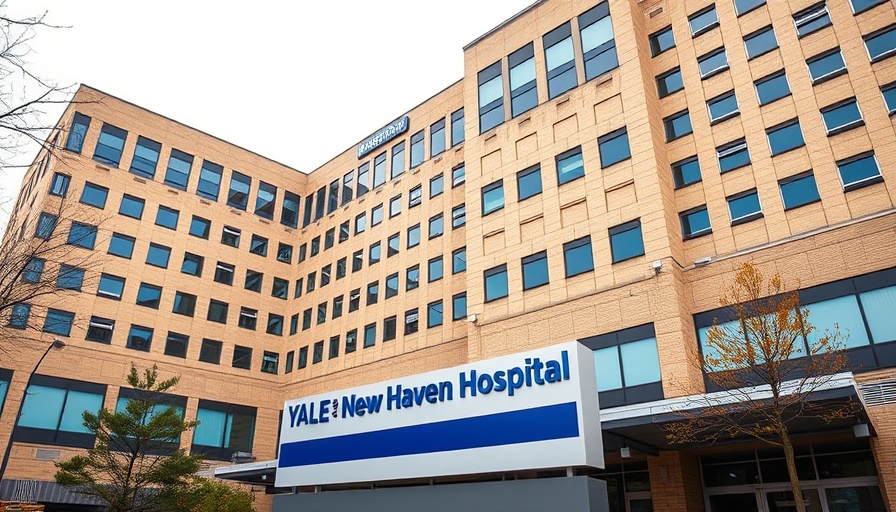
Significant Data Breach: A Wake-Up Call for Healthcare Systems
A recent cybersecurity incident at Connecticut's Yale New Haven Health has raised alarm bells across the healthcare sector. With more than 5.5 million individuals impacted, this breach stands as one of the largest in the history of medical data security. As the dust settles, patients are left wondering not just about their personal information, but the broader implications this event holds for the healthcare industry.
Understanding the Breach: What Happened?
On March 25, 2025, Yale New Haven Health became the target of a malicious cyberattack that reportedly compromised sensitive information including names, birth dates, and Social Security numbers. The health system confirmed that hackers accessed details that could significantly affect patient privacy and security. As local media reported, the healthcare system's spokesperson indicated the number of affected individuals might fluctuate as the investigation continues, highlighting the dynamic nature of cybersecurity threats.
The Broader Context: Cybersecurity in Healthcare
This breach is particularly significant not just for its scale, but as it comes on the heels of another major incident: Blue Shield of California disclosed its sharing of private health data with Google for years, potentially affecting 4.7 million patients. These occurrences spotlight ongoing vulnerabilities in the healthcare sector, which is often seen as lagging behind other industries in cybersecurity preparedness. The frequency of such breaches raises critical questions about the overall infrastructure of data protection within healthcare systems.
Why Should You Care? The Stakes for Patients
The implications of data breaches like the one at Yale extend far beyond immediate threats to patient privacy. Stolen data can lead to identity theft, fraudulent medical claims, and significant emotional distress for affected individuals. Healthcare organizations must therefore prioritize cybersecurity to restore public trust, ensuring that patients feel safe sharing their information. In an industry that regularly handles sensitive personal data, enhancing security measures isn’t just prudent; it's essential.
{Future Predictions: The Evolution of Cybersecurity in Healthcare}
As cyber threats grow more sophisticated, predictions suggest that healthcare organizations will need to adopt a multi-layered security approach, involving advanced technologies such as artificial intelligence and machine learning to detect anomalies in real time. The battle against cybercrime will likely redefine how health systems operate, pushing them towards more proactive measures rather than reactive ones.
Actions for Healthcare Providers: Preventing Future Breaches
For healthcare providers, implementing robust cybersecurity measures must become a top priority. Potential strategies include regular security audits, staff training on data security best practices, and investing in cutting-edge encryption technologies. By addressing these vulnerabilities head-on, healthcare organizations can not only protect themselves but also foster a culture of safety for patients.
What Can Patients Do?
Patients, too, play a crucial role in safeguarding their data. Regularly monitoring personal accounts, employing strong, unique passwords, and staying informed about potential scams are proactive steps individuals can take to protect themselves. Encrypting personal information and being cautious when sharing sensitive data online can help mitigate risks.
Final Thoughts: The Urgency of Addressing Cybersecurity in Healthcare
As the Yale New Haven Health incident serves as a stark reminder of the vulnerabilities within healthcare cybersecurity, it is imperative for both organizations and individuals to take action. The intertwined relationship between technology and trust means that safeguarding health data is not just a technical issue; it is a moral obligation. With the stakes higher than ever, the call for stronger protections and heightened awareness in cybersecurity must be answered.
We encourage readers to take control of their personal data security and stay informed about developments in healthcare technology. Your security matters in this evolving tech landscape.
 Add Row
Add Row  Add
Add 



Write A Comment